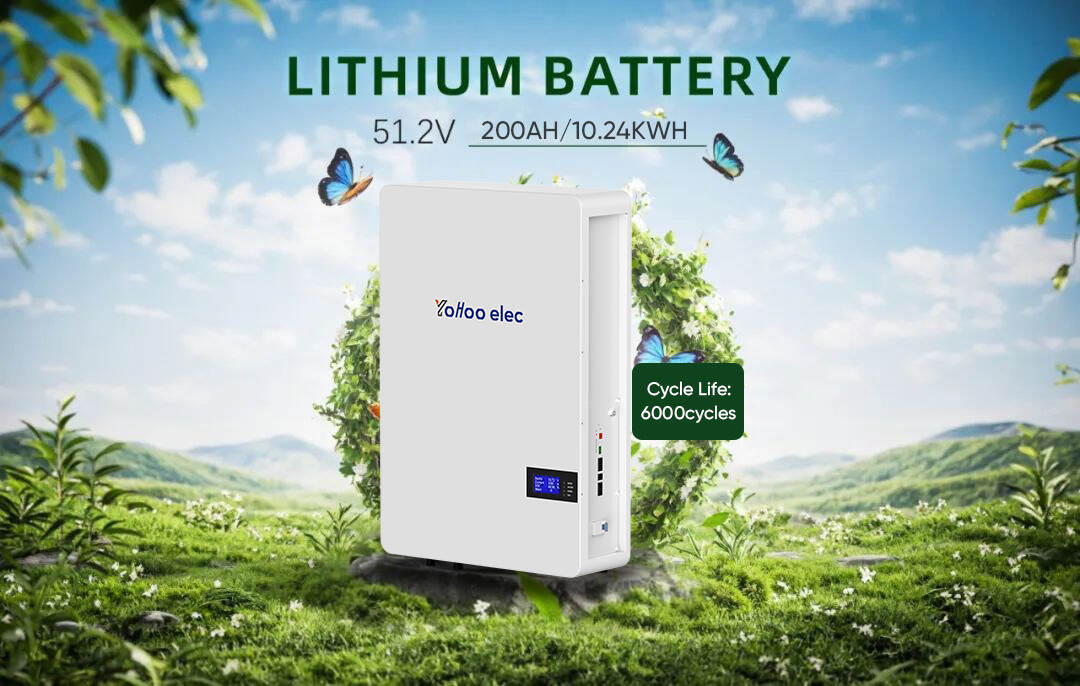Language
Currency


In any energy storage system, the quality of the battery cell is critical—it directly impacts safety, cycle life, and system reliability. The differences between Grade A, B, and C battery cells are not just technical—they define how long your system lasts and how safely it operates.
At Yohoo Elec, we are committed to using only Grade A battery cells in our YH Series storage products. This blog outlines why that matters and helps you understand the performance, safety, and application differences between various cell grades.
Grade A Cells:
Carefully selected and rigorously tested for high consistency in voltage, internal resistance, and capacity. This ensures balanced performance across the entire battery pack, improving charging efficiency and system stability.
Grade B Cells:
May deviate slightly from Grade A standards due to minor imperfections or manufacturing variances. These inconsistencies can lead to imbalanced charging/discharging and decreased system reliability over time.
Grade C Cells:
Known for poor consistency and greater deviation in performance metrics. Using these cells in large-scale systems requires careful risk assessment due to potential safety and performance issues.
Grade A Cells:
Typically rated for 6,000–8,000+ cycles, with some premium cells exceeding 10,000 cycles under optimized conditions. Yohoo Elec YH Series batteries are built to deliver long-lasting performance for both residential and commercial use.
Grade B Cells:
Often sourced from surplus or lightly used stock, with shorter cycle life and more variation in longevity. Less suited for demanding or long-duration applications.
Grade C Cells:
Significantly shorter lifespan. Rapid capacity degradation makes them unsuitable for most energy storage applications, especially where long-term stability is required.
Grade A Cells:
Must pass a full suite of safety tests, including capacity, voltage, internal resistance, and thermal stability. They typically comply with UL, IEC, and UN38.3 safety standards, offering maximum protection in diverse environments.
Grade B Cells:
May lack full safety certification or show minor defects. Safety risks are higher and must be mitigated with advanced battery management systems (BMS).
Grade C Cells:
Frequently lack systematic testing and present higher risks of overheating, leakage, or thermal runaway. Not recommended without strict usage controls.
Grade A Cells:
Deliver consistent, low-maintenance operation. Reduced need for cell replacement or troubleshooting helps minimize long-term operational costs.
Grade B Cells:
Higher likelihood of imbalance and premature failure may result in more frequent maintenance or battery pack replacements.
Grade C Cells:
Increased maintenance burden and higher failure rates significantly drive up operating costs and reduce user satisfaction.
Grade A Cells:
Ideal for residential, commercial, and industrial energy storage systems requiring high reliability, long cycles, and safety under heavy or extended loads.
Grade B Cells:
May be used in cost-sensitive, low-priority applications, provided proper protective measures and monitoring systems are in place.
Grade C Cells:
Suitable only for short-term, low-demand backup power where risk tolerance is high, and performance is not critical.
At Yohoo Elec, we understand that battery cells are the heart of every energy storage system. That’s why our YH Series exclusively uses Grade A lithium battery cells—to guarantee long-lasting performance, safety, and peace of mind for our customers.
Backed by intelligent Battery Management Systems (BMS) and strict quality controls, our storage solutions are engineered to meet the highest global standards. Whether you're powering a home or a business, the YH Series helps you achieve stable, clean, and cost-effective energy independence.
Choose Yohoo Elec. Choose reliability. Power your future with confidence.
Błąd formatu e-mail
emailCannotEmpty
emailDoesExist
pwdLetterLimtTip
inconsistentPwd
pwdLetterLimtTip
inconsistentPwd